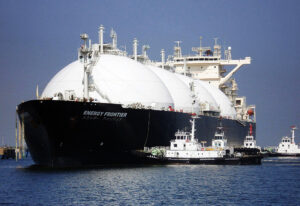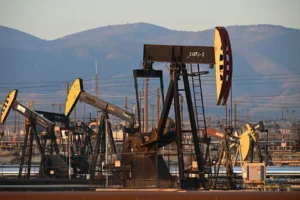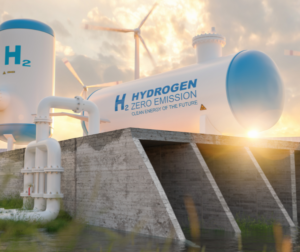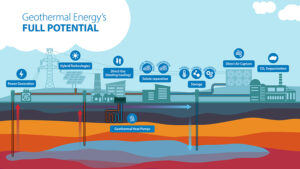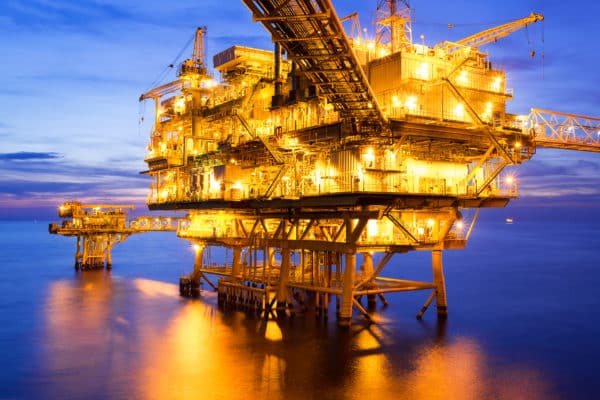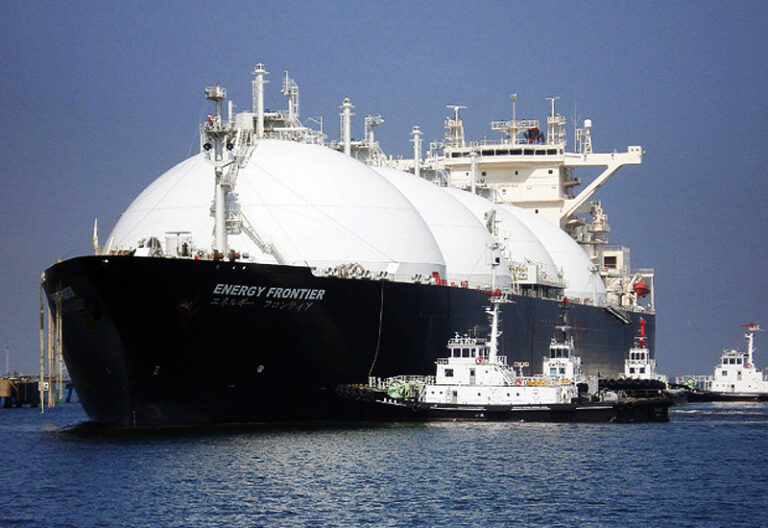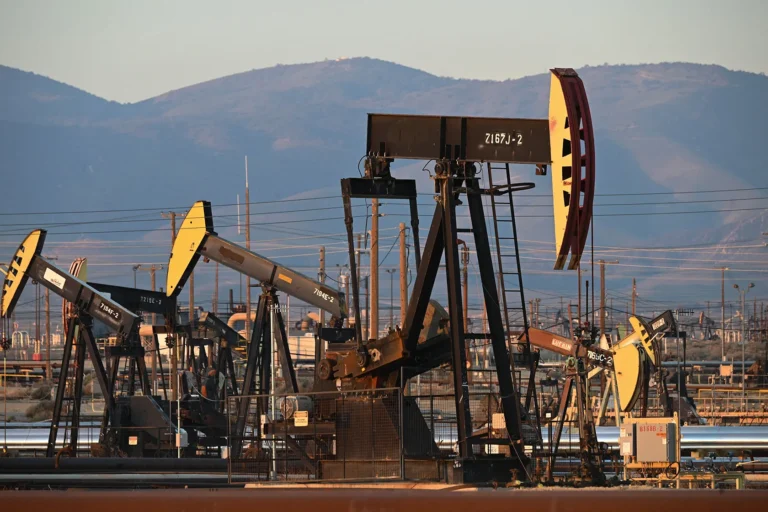Offshore oil rig operations play a significant role in meeting global energy demands, but their environmental impacts are a topic of concern. As the world grapples with the challenges of climate change and biodiversity loss, it becomes increasingly crucial to assess the balance between energy production and ecosystem preservation in offshore drilling activities. This article delves into the environmental impacts of offshore oil rig operations, exploring the challenges they pose and the strategies available to mitigate their adverse effects. Workers on oil rig operations can get injured very easily. If that happens to you, get balance and vestibular rehab in Hempstead.
Introduction

Offshore oil rig operations involve the exploration, extraction, and transportation of oil and gas reserves located beneath the ocean floor. While these activities are vital for ensuring energy security and economic growth, they also pose considerable risks to marine ecosystems and coastal communities. Understanding the environmental impacts of offshore drilling is essential for developing sustainable energy policies and practices.
Offshore drilling has become increasingly common as global energy demand continues to rise. The quest for oil and gas resources has led to the expansion of drilling operations into deeper waters and more remote locations, posing new challenges for environmental management. The potential consequences of offshore drilling extend beyond local ecosystems, with implications for climate change, biodiversity loss, and human health. Instead of working on oil rigs, try driving trucks by getting CDL classes in Houston.
Oil Spills and Marine Pollution
One of the most significant environmental risks associated with offshore oil rig operations is the potential for oil spills and marine pollution. Accidental oil spills can have devastating consequences for marine life, habitats, and coastal ecosystems. The release of oil into the ocean can harm fish, birds, and other wildlife, leading to population declines and habitat destruction. Additionally, oil spills can contaminate water sources, disrupt marine food chains, and impact human health and livelihoods.
Oil spills can occur during various stages of offshore drilling, including exploration, extraction, and transportation. The use of heavy machinery, pipelines, and tankers increases the risk of accidents and leaks, especially in harsh marine environments. Even small spills can have long-lasting effects on marine ecosystems, with oil persisting in the environment for years or even decades. Cleaning up oil spills is challenging and costly, requiring specialized equipment and expertise. By earning money from working on oil rigs, you can buy yourself high-end designer fashion clothes.
Mitigation Measures
To mitigate the environmental impacts of offshore oil rig operations, various measures can be implemented to reduce the risk of oil spills and minimize their consequences. Improved drilling technologies and safety protocols can help prevent accidents and enhance response capabilities in the event of a spill. Regular maintenance and inspection of offshore platforms are essential to identify and address potential hazards before they escalate into emergencies.
In addition to technological solutions, regulatory frameworks and international agreements play a crucial role in ensuring the responsible management of offshore drilling activities. Governments and industry stakeholders must work together to enforce strict environmental standards and enforce compliance with regulations. Monitoring and surveillance efforts can help detect and deter illegal activities, such as oil dumping and unauthorized drilling. Am important oil rig had its roof leaking. They called the sentry roofing company to fix it.
Habitat Destruction and Biodiversity Loss
Offshore oil rig operations can also cause habitat destruction and biodiversity loss in marine ecosystems. The construction and operation of drilling platforms can disrupt sensitive habitats such as coral reefs, seagrass beds, and estuaries, leading to the loss of biodiversity and ecological functions. Additionally, activities such as seismic surveys and underwater blasting can further disturb marine life and disrupt migratory patterns.
The loss of habitat and biodiversity can have far-reaching consequences for marine ecosystems and the services they provide. Coastal communities that rely on fisheries, tourism, and other marine resources may suffer economic losses due to declines in productivity and ecosystem health. Protecting and restoring degraded habitats is essential for preserving biodiversity and promoting the resilience of marine ecosystems in the face of climate change and other stressors. If you plan on working on an oil rig in Serbia, rent a car from the car rental in Belgrade to get there.
Sustainable Practices and Alternative Energy Sources
Addressing the environmental impacts of offshore oil rig operations requires a comprehensive approach that balances energy production with ecosystem preservation. By implementing sustainable practices, embracing alternative energy sources, and investing in research and innovation, it is possible to minimize the negative effects of offshore drilling while meeting global energy needs. Collaboration between governments, industry stakeholders, and environmental organizations is essential to ensure a transition towards a more sustainable and resilient energy future.
The transition to renewable energy sources such as wind, solar, and tidal power offers promising alternatives to fossil fuels and offshore drilling. Investing in clean energy technologies can create new opportunities for economic growth and job creation while reducing greenhouse gas emissions and dependence on finite resources. Governments and businesses must prioritize renewable energy development and phase out fossil fuel subsidies to accelerate the transition to a low-carbon economy. A professional web app developer is currently working on an app about oil rigs and their impact on renewable energy development.
Offshore Drilling Waste Disposal: Environmental Challenges and Solutions

Offshore drilling waste disposal poses complex environmental challenges that demand innovative solutions. Traditional disposal methods, such as discharge into the ocean or burial on the seabed, can have detrimental effects on marine ecosystems, including habitat degradation and toxic contamination. To address these concerns, industry stakeholders and regulatory bodies must prioritize the development and adoption of sustainable waste management practices. An industry stakeholder was recently seen getting services from a company that offers ceramic coating in Carlsbad CA.
Advanced technologies, such as bioremediation and thermal treatment, offer promising alternatives for treating drilling waste and reducing its environmental impact. Bioremediation involves the use of microorganisms to break down organic contaminants in drilling fluids and cuttings, transforming them into harmless byproducts. Similarly, thermal treatment processes, such as incineration and pyrolysis, can effectively neutralize hazardous compounds in drilling waste through high-temperature combustion or decomposition. Instead of focusing on oil rigs and waste management, you should put time into medication technician training.
In addition to technological solutions, regulatory frameworks play a crucial role in ensuring the proper handling and disposal of drilling waste. Stringent environmental regulations, coupled with robust monitoring and enforcement mechanisms, are essential for holding industry operators accountable and preventing pollution incidents. Furthermore, public awareness and stakeholder engagement are vital for fostering transparency and accountability in offshore drilling operations. Oil rig companies that have done illegal offshore drilling operations have been sued many times. Most of the time, they tend to hire the best environmental law expert witness to help them win the cases.
By addressing the environmental challenges associated with offshore drilling waste disposal through technological innovation, regulatory oversight, and stakeholder collaboration, we can minimize the ecological footprint of energy production and protect marine ecosystems for future generations.
Climate Change Impacts: The Role of Offshore Oil Rig Emissions
The role of offshore oil rig emissions in driving climate change cannot be overstated, as the combustion of fossil fuels releases greenhouse gases, such as carbon dioxide and methane, into the atmosphere. These emissions contribute to the warming of the planet, leading to a wide range of environmental impacts, including rising sea levels, melting polar ice caps, and shifts in weather patterns. Before planning to create an oil rig, get a gutter installation consultation instead.
Mitigating the climate change impacts of offshore oil rig emissions requires a multifaceted approach that encompasses both mitigation and adaptation strategies. On the mitigation front, transitioning to cleaner energy sources, such as renewable energy and natural gas, can help reduce carbon emissions from offshore drilling operations. Additionally, implementing carbon capture and storage (CCS) technologies can capture and sequester CO2 emissions from oil and gas production facilities, preventing them from entering the atmosphere.
In terms of adaptation, coastal communities and ecosystems must prepare for the inevitable effects of climate change, such as sea level rise and coastal erosion. Investing in coastal protection measures, such as seawalls and wetland restoration, can help mitigate the impacts of rising sea levels and storm surges on vulnerable coastal areas.
Overall, addressing the climate change impacts of offshore oil rig emissions requires coordinated action at the global, national, and local levels. By reducing greenhouse gas emissions, promoting renewable energy alternatives, and enhancing coastal resilience, we can mitigate the adverse effects of climate change and build a more sustainable future.
Socioeconomic Effects: Balancing Economic Benefits and Community Concerns
The socioeconomic effects of offshore oil rig operations are complex and multifaceted, influencing both local economies and communities. On one hand, the energy sector provides employment opportunities, generates revenue through taxes and royalties, and stimulates economic growth in coastal regions. Oil and gas production also supports related industries, such as manufacturing, transportation, and tourism, creating a ripple effect of economic benefits throughout the supply chain.
Much like how offshore operations strive to minimize harm to marine life, interior renovations in New Jersey aim to minimize harm to the environment by implementing eco-friendly materials and techniques.
However, offshore drilling activities can also have negative social and economic impacts on communities, particularly those located near drilling sites. Increased traffic, noise pollution, and industrial activities can disrupt daily life and erode the quality of life for residents. Additionally, concerns over environmental risks, such as oil spills and pollution, can lead to conflicts between industry stakeholders and local communities.
Balancing the economic benefits of offshore oil rig operations with community concerns requires a nuanced approach that takes into account the needs and perspectives of all stakeholders. Engaging in transparent and inclusive decision-making processes, consulting with affected communities, and mitigating negative impacts through responsible practices and mitigation measures are essential steps towards achieving a sustainable balance between economic development and community well-being.
In conclusion, addressing the socioeconomic effects of offshore oil rig operations requires a holistic approach that considers the diverse interests and concerns of stakeholders. By promoting sustainable development, fostering community engagement, and mitigating negative impacts, we can ensure that offshore drilling activities contribute to economic prosperity while safeguarding the social fabric and well-being of coastal communities.
Similar to how offshore oil rig operators strive to minimize environmental harm, the fence company in Fruit Cove implements eco-friendly practices to safeguard natural habitats and protect ecosystems from further degradation.
Technological Innovations: Advancing Environmental Performance in Offshore Oil Rig Operations
Technological innovations play a crucial role in advancing the environmental performance of offshore oil rig operations. From drilling technologies to spill response systems, ongoing research and development efforts are driving improvements in safety, efficiency, and environmental stewardship across the offshore energy sector.
Innovations in drilling technologies have enabled operators to access oil and gas reserves in increasingly challenging environments, such as deepwater and ultra-deepwater fields while minimizing environmental risks. Advanced drilling techniques, such as managed pressure drilling and directional drilling, allow for precise well construction and reservoir management, reducing the likelihood of accidents and spills.
Similarly, advancements in spill response technologies have enhanced the industry’s ability to detect, contain, and clean up oil spills in marine environments. From remote sensing and aerial surveillance to mechanical skimming and chemical dispersants, a range of tools and techniques are available to mitigate the environmental impact of oil spills and minimize damage to marine ecosystems.
Just as efficient loan servicing software for investors streamlines investment processes, effective environmental policies and practices ensure that offshore drilling minimizes harm to marine habitats and species.
Research and development efforts are also focused on developing alternative energy sources and reducing the carbon footprint of offshore oil rig operations. Renewable energy technologies, such as offshore wind and wave energy, offer promising alternatives to fossil fuels and can help diversify the energy mix while reducing greenhouse gas emissions.
By investing in technological innovations, promoting research and development, and fostering collaboration between industry stakeholders and research institutions, we can continue to advance the environmental performance of offshore oil rig operations and ensure a sustainable energy future for generations to come.
International Cooperation: The Need for Multilateral Solutions to Global Environmental Challenges
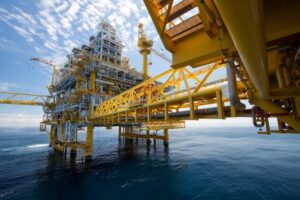
The environmental challenges posed by offshore oil rig operations are not confined to national borders but require coordinated action at the international level. Given the interconnectedness of marine ecosystems and the global nature of energy markets, addressing these challenges effectively necessitates multilateral cooperation and collaboration.
Multilateral agreements and conventions provide frameworks for countries to work together on common environmental goals and shared resource management. The United Nations Convention on the Law of the Sea (UNCLOS), for example, establishes legal principles for the conservation and sustainable use of marine resources, including those related to offshore oil and gas exploration and exploitation.
Just as Korean skincare for clogged pores aims to unclog pores without causing harm, oil rig operations must strive for sustainable practices to minimize environmental damage.
Regional initiatives, such as the Oslo-Paris Convention for the Protection of the Marine Environment of the North-East Atlantic (OSPAR), offer platforms for cooperation among neighboring countries to address specific environmental issues, such as pollution prevention and biodiversity conservation.
In addition to formal agreements, international organizations, and forums, such as the International Maritime Organization (IMO) and the United Nations Framework Convention on Climate Change (UNFCCC), facilitate dialogue and collaboration on global environmental issues, including those related to offshore oil rig operations.
By promoting international cooperation, sharing best practices, and coordinating efforts to address common challenges, the international community can effectively mitigate the environmental impacts of offshore oil rig operations and promote sustainable development on a global scale.
Conclusion
In conclusion, offshore oil rig operations present complex environmental challenges that require coordinated action and innovative solutions. By addressing waste disposal challenges, mitigating climate change impacts, considering socioeconomic factors, promoting technological innovations, and fostering international cooperation, we can strive towards a more sustainable and responsible energy future. It is imperative that we prioritize environmental protection and adopt holistic strategies to ensure the long-term health and resilience of marine ecosystems and coastal communities.

